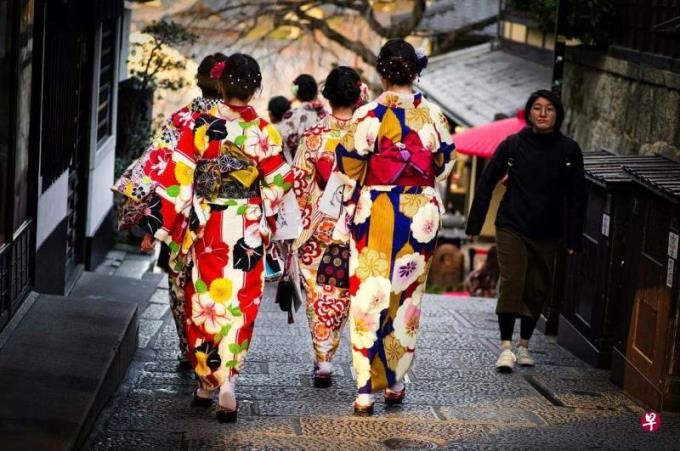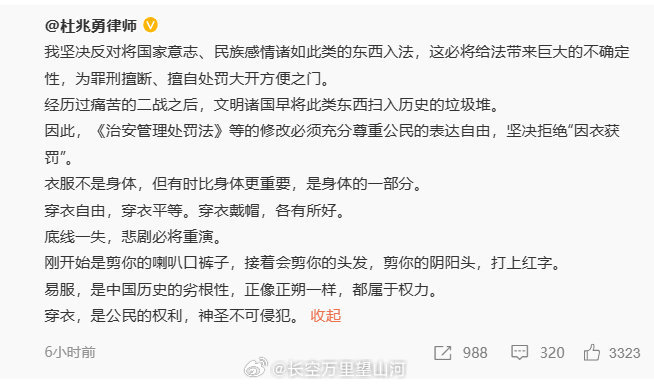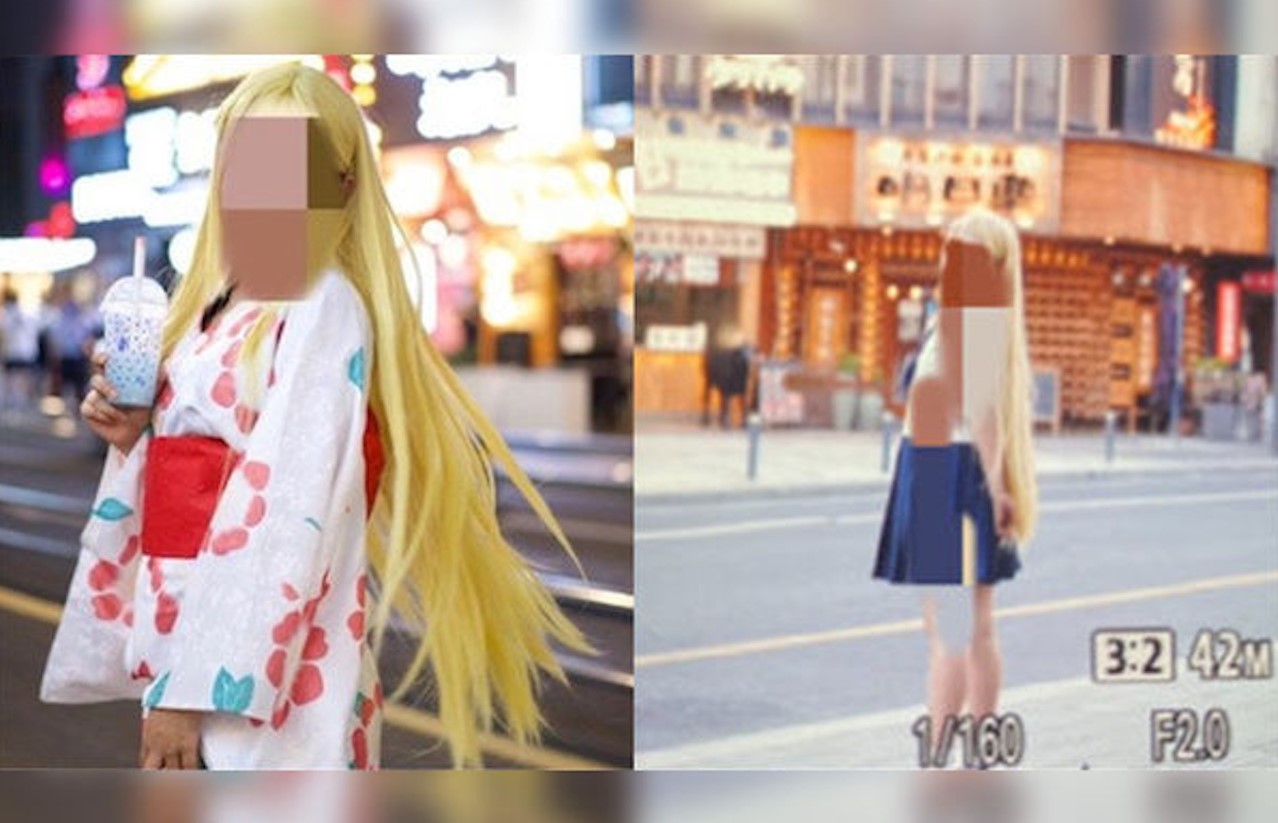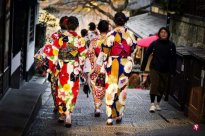
The draft draft amendments to the law of public security management punishment law recently drafted in China.For the first time, clothing, speech, logo, items, etc., which "hurt the national feelings" into the red line that hurts the spirit of the Chinese nation.
The provisions of the first section of the draft and Article 34 of the penalty in the first section of the draft clearly list the six items accused of destroying the spirit of heroes and the spirit of the Chinese nation, including:
- Entering activities in public places to damage the environment and atmosphere of heroes and martyrs in public places;The costumes and signs of national feelings;
- production, dissemination, promotion, and distribution of items or remarks that harm the spirit of the Chinese nation, hurt the Chinese nation feelings;
- insult, slander or other waysThe name, portrait, reputation, honor, and public interests of the heroes of heroes and martyrs harmed the public interests of social;
If the above behavior is involved, it will be detained for more than five days, less than 10 days, or 1,000 yuan (RMB, the same below, about 189 yuan) or aboveIf heavier is more than 10 days, detention of less than 15 days, and a fine of less than 5,000 yuan.
How can you be considered "hurting the national feelings"?
What is "damaging the spirit of the nation" and "hurting the feelings of the nation", what kind of behavior can be regarded as harming national feelings, and the regulations are not explained.These blurred and difficult -to -quantified legal concepts are obviously difficult to accept the Chinese people.As soon as the draft was announced, many questions and criticisms were immediately caused.
The biggest questioning of public opinion is the definition of "hurting national feelings" and "harmful national spirit".Chinese people) will be as fragile as babies. Some people wear a set of strange clothes or criticize them in words, and they collapse collectively? "
A netizen who claims to be a lawyer believes that in the regulations, the" national spirit, ethnic group"Definition and difficulty defining feelings, it is difficult to quantify law enforcement, nor does it meet the principles of China's serious legislation."If it really hurts the national feelings and damage the national spirit, can it be done?"
not only a vague definition, the huge interpretation space extended by the uncertainty of the provisions, but also that many netizens are worried aboutPolice will abuse provisions and over -enforcement.
Lawyer Du Zhaoyong posted on Weibo on Tuesday morning, saying that he resolutely opposed things that were in the law such as national will and national feelings.Penalize the door of convenient punishment. "
He emphasized that clothes are not physical, but sometimes more important than the body and are part of the body."Free dressing, equal dressing. Dress and hats, each has its own good." This post was deleted on the afternoon of the same day.

In the context of the deterioration of Chinese and Japanese folk relations, many netizens also put their attention on clothing.They are worried that in the past, there were cases of being detained in Japanese kimono. Once the regulations were implemented, does it mean that in the future, eating Japanese materials, watching animation, and even learning Japanese, will it be very likely to be considered a offending national feelings?
There are also netizens ridiculed: "(China) the stock market has not worked for so many years, damaging the image of a large country and hurting the feelings of the Chinese nation.It is deemed to be the official wind direction of the Global Times former editor -in -chief Hu Xijin that the spirit and feelings of the Chinese nation need to be maintained and cannot be damaged.However, he also agreed that it is necessary to specifically specify the content of "damage the spirit of the Chinese nation" and "hurting the feelings of the Chinese nation", such as directly indicating the relationship between those words and deeds, with fascism, militarism, and national division forces.Many misunderstandings.
The draft regulations have been reviewed by the Standing Committee of the Chinese People's Congress and are soliciting opinions from the public. The deadline on September 30.Many netizens said that they have put forward their own opposite opinions on the draft, hoping to prevent officials from expressing the officials of "hurting national feelings".
But some netizens believe that if they do not intend to harm national feelings, the demand should be further refined the terms, rather than requesting deletion.
The endorsement of the police's provocation law enforcement?
Before the bill was officially effective, the outside world could not know what kind of clothing wearing and what kind of speech to say will be found by the police, but in the past few years, there are indeed many in the past few years.Examples to cause trouble.
In 2018, two men were reported to wear imitating Japanese military uniforms in front of the Zijin Mountain Anti -Japanese War site in Nanjing. They were subsequently identified by the Public Security Bureau that the behavior had constituted a crime of provocation, so they were detained for 15 days.

Four years later, a Chinese woman wearing a Japanese kimono went to Suzhou Huaihai Street, Jiangsu Province last August, and was subsequently brought back to the police station by the local police for suspected provocation.The girl was put back after a five -hour criticism education and writing a written examination.
Police believe that girls wearing kimono photos have constituted "inciting national hatred", and they also reprimanded the girl: "You can wear Hanfu, but you can wear kimonos, you are Chinese!"

According to Article 293 of the Chinese Criminal Law, an act of constituting provocation includes: beating others at will; chasing, intercepting, insulting others; forced to force or damage or occupy public and private property; in the public; in the publicThe place has been coaxing and making troubles, causing serious chaos in public places.
Like the laws and security management punishment law argued this time, the criminal law did not clearly stipulate that wearing kimono or a specific clothing in public places would constitute a crime of provocation.However, in the context of the increasingly tense Sino -Japanese relations and the worsening of folk relations, wearing kimonos in public, or wearing role -playing clothing (Cosplay), imitating Japanese anime characters often arouse the dissatisfaction of some people.
In addition, the criteria for provoking trouble are too vague, the most external criticism.Its law enforcement process is often described as a "pocket crime" that is applicable.Zhu Zhengfu, a representative of the National People's Congress of China in March this year, said on Caixin.com that the vagueness of the crime of provoking trouble not only affects the people's powerThe reasonable expectations of the obligations also led to selective law enforcement in law enforcement agencies.
"Especially in recent years, a large number of online speakers have also been convicted by this charges, which has severely eroded the boundary of freedom of speech; and the implementation standards in various places are not uniform, and the qualitative qualitative is seriously lacking seriously.Interests, reducing the people's respect and belief in the law. "
Today, China's official plans to be included in the provisions of" harm the national feelings "and" harm the spirit of the Chinese nation "within the law of public security management punishment.Then give law enforcement agencies to give more official endorsements when dealing with similar incidents.
Phoenix.com posted on Wednesday (September 6) that the legal punishment of pan -morality will be punished to resort to abstract concepts such as public emotions, social value, etc.It will turn punishment and administrative penalties into a tool to implement a certain moral concept, and then harm the rights and freedom of the country's country.
And, this can not help worrying about grassroots people. Once "damage the spirit of the nation and harm the feelings of the nation" is used as an abstract and difficult to quantify legal conceptual enlightenment, it will become the official standing on the moral highlands.For individuals, the tools of national trials, or even mobilizing national punishment, have made provisions in turn to prevent the people's personal freedom.
The above article published by Phoenix.com is no longer found on Wednesday afternoon.
How to define "hurting national feelings" and how to define in legal practice are controversial.The draft has not yet been in the law, and some of the questioning sounds will be eliminated. No wonder the public will be uneasy.



